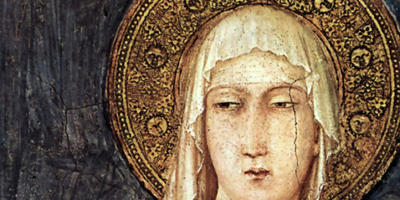DANIEL ISLAND—Immaculée Ilibagiza’s life was torn apart by one of the bloodiest campaigns of terror of the late 20th century. But through the power of faith and prayer, she was able to find the strength to forgive.
A survivor of the 1994 Rwanda genocide that left most of her family and nearly one million others dead, Ilibagiza shared “A Story of Faith, Hope and Forgiveness” at Bishop England High School on Feb. 2. The event was sponsored by St. Clare of Assisi Church on Daniel Island.
Ilibagiza’s biographical account of the tragedy is documented in her 2006 book, “Left to Tell: Discovering God Amidst the Rwandan Holocaust,” a New York Times best seller that has sold more than two million copies.
She grew up in a tiny village in Rwanda and was home from college on Easter Break in April 1994 when the Rwandan president’s assassination thrust the country into nearly three months of bloodshed. Extremist factions of the Hutu ethnic majority went on a killing spree throughout the country, slaughtering members of the minority Tutsi tribe.
“I will never forget the moment, the second I heard the news,” Ilibagiza told the more than 1,300 attendees. “You knew you would never be the same again. I felt like the sky had changed color.”
When the massacre began, Immaculée’s father took her to a nearby pastor’s house for protection from the killers as they charged toward their small rural village. For 91 days, she and seven other women cowered in fear in a tiny hidden bathroom at the pastor’s house. Armed only with a rosary given to her by her father, she spent countless hours in prayer as her fear and anger gradually transformed into a sense of peace, love, and hope.
“I started to think from my heart,” Ilibagiza said. “And I started to speak to God as I am talking to you.”
By early July, the homicidal rampage ended and Ilibagiza emerged from the tiny cramped bathroom weighing 65 pounds. Soon after, she learned her parents and two of her three brothers were among the estimated 800,000 to one million Rwandans brutally murdered by the Hutu extremists.
Having strengthened her relationship with God during those terrifying days huddled in the bathroom hideout, Ilibagiza recalled facing the aftermath of the tragedy with unconditional love and forgiveness. In the months following the genocide, she sought out and met the man who murdered her family. She told him simply, “I forgive you.”
“It was as if a huge weight had been lifted from my shoulders,” Ilibagiza said. “I felt free. Even if I wanted, I couldn’t hate them anymore.”
Four years after the genocide, Ilibagiza emigrated to the United States and became a citizen in 2013.
“Take every day of your life as a gift and use it for something good, something kind, something loving,” Ilibagiza said in her closing remarks to the audience. “If you succeed in making them feel like somebody cares, then you have done your part today.”
By Chip Lupo/Special to The Miscellany


